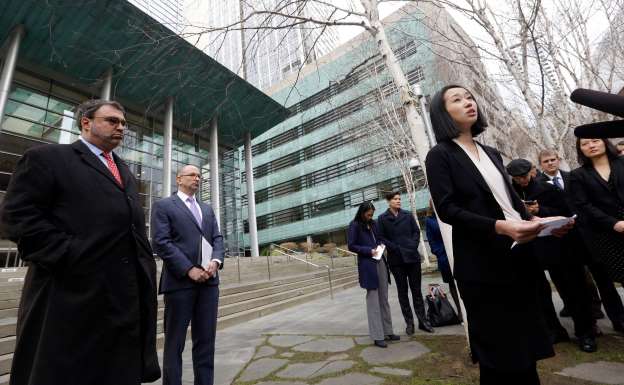A federal appeals court ruled Friday against President Trump’s latest travel ban, saying that it “exceeds the scope of his delegated authority,” but that it was ultimately for the Supreme Court to decide.
A three-judge panel of the United States Court of Appeals for the Ninth Circuit in Seattle affirmed the decision of a federal judge in Hawaii who ruled on Oct. 17 that the order was unlawful on statutory grounds.
The ruling on Friday was a procedural but important step. This month, the Supreme Court allowed the ban — the third version issued by the Trump administration — to take effect for now, and encouraged the appeals courts to rule on the case, a sign that it intended to take up the matter. The Court of Appeals for the Fourth Circuit is considering a similar ruling out of Maryland.
Neal Katyal, who argued the case before the Ninth Circuit court for the state of Hawaii, hailed the decision. “We are very pleased the Court of Appeals recognized that the president’s latest travel ban is flatly illegal,” he said, “and that his order defies the law Congress has laid down.”
Lauren Ehrsam, a spokeswoman for the Justice Department, said the Trump administration was “pleased” that the Supreme Court had already allowed the government to carry out the order.
“We continue to believe that the order should be allowed to take effect in its entirety,” she said.
The Supreme Court asked this month that both the Ninth and Fourth Circuit courts rule expeditiously to enable it to take up the case. It will likely wait on the Fourth Circuit opinion before it decides whether it will hear the appeal and “finally decide to resolve this issue,” said Carl Tobias, a law professor at the University of Richmond.
Mariko Hirose, the litigation director for the International Refugee Assistance Project, which is one of the main plaintiffs suing the government in the Fourth Circuit court, said the Ninth Circuit decision was important because “it affirms what the parties have been saying — that this ban is just as unlawful as the prior versions.”
The judges said the ban conflicted with immigration law’s “prohibition on nationality-based discrimination,” and that Mr. Trump had failed to prove that blocking the entry of citizens of certain countries would be detrimental to the United States’ interests. They also said that Congress had already passed laws that kept out individuals with known terrorist activity.
In its latest version of the ban, the Trump administration restricted travel from eight nations, six of them predominantly Muslim. Most citizens of Chad, Iran, Libya, North Korea, Somalia, Syria and Yemen are barred from entering, along with some groups from Venezuela.
The administration said the restrictions would be in effect until those countries proved to the United States that they had adequate screening. But the appeals court said that the ban was, in effect, an indefinite one, and that Congress did not give the president the authority to stop immigration from any country indefinitely.
“The proclamation’s duration can be considered definite only to the extent one presumes that the restrictions will, indeed, incentivize countries to improve their practices,” the ruling said. “There is little evidence to support such an assumption.”

